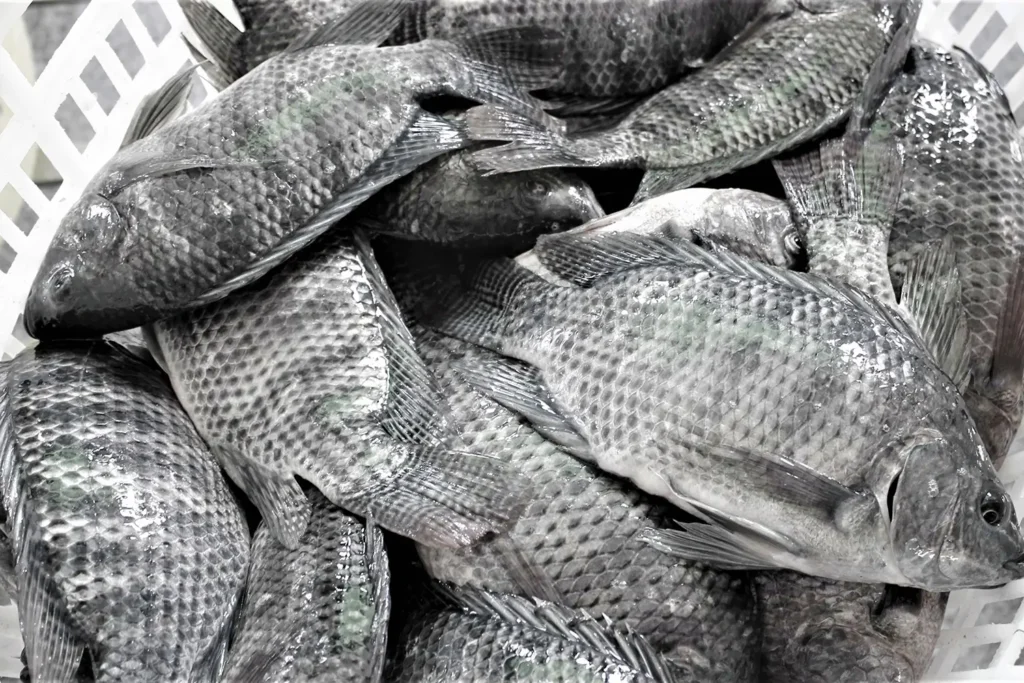Food & Climate
Farming tilapia in Egypt for export requires high temperatures, and although climate change has led to a significant increase in weather temperatures all over the world, especially in the Middle East and Africa, over the past two years, this is not enough, according to what the Chairman of Fish Basket, Engineer Ali Elhaddad, told “Food & Climate” platform.
According to the International Meteorological Organization, last year was the hottest year ever, as was the last decade.
Elhaddad said: “The temperature has risen, but to what level, and for how long will the temperature rise? It exceeded 40 degrees on some days in Lower Egypt (the northern governorates of the country). Farming tilapia in Egypt in a way that is suitable for exporting production requires a long period of high temperatures, so it is best to do this in Lake Nasser – the High Dam – in Aswan in Upper Egypt, which is located on the border with Sudan.”
Elhaddad explained the reasons for this, saying: “Tilapia farming in Egypt depends on the waters of the Nile River, and temperatures that are not high enough to the required level negatively affect the weight of the fish, as it does not exceed 350-500 grams, while the fish suitable for export does not weigh less than one kilogram”.
He pointed out that the weather in Aswan in the south is suitable for farming tilapia in Egypt in Lake Nasser, but there are many regulatory obstacles that stand in the way of this matter.
Lake Nasser and farming tilapia fish in Egypt
“Food & Climate” platform spoke with Elhaddad on the sidelines of his participation in a symposium held by the Egyptian Center for Economic Studies, yesterday, Monday, January 20, 2025, in Cairo, entitled “Is Egypt on the right path to achieving sustainability in its blue economy?”
During the symposium, Elhaddad spotted on what is happening in Lake Nasser and its impact on farming tilapia in Egypt, or in the only area suitable for this in the country.
He said that the great depth of Lake Nasser does not mean that it produces large quantities of tilapia fish, because these fish live in the first 10-15 meters and do not go down to a greater depth, and although its production capacity is 60-70 thousand tons, Egypt only extracts 20 thousand tons from it.
He explained that the lake is affiliated with the government, specifically the Ministry of Irrigation through the Fish Resources Authority, which approved 6 companies to fish in the lake, and each company has a boat and 2,000 fishermen, and the authority provides each company with an ice block to preserve the fish after catching it, but this is not enough, because the ice melts even before the end of the fishing process, which leads to spoilage.

He added that the lake needs different management to be suitable for the process of farming tilapia fish in Egypt suitable for export, especially with regard to the production process and preserving and transporting the fish properly.
Very long coastline
Egypt has a very long coastline on the Mediterranean and Red Seas, about 3,000 and 1,300 kilometers respectively, but it does not benefit greatly from these coasts in the field of fishing, according to Ali Elhaddad.
Elhaddad said, during his participation in the symposium: “Fish come to Egypt through the Strait of Gibraltar in the Mediterranean Sea, and their quantity decreases the more it passes through a country than the previous one. The quantity of fish that comes to Libya is greater than Egypt, but less than Tunisia. In the Red Sea, the percentage of oxygen is lower, which means that the long coasts in the field of fish are not influential, but there is a large marine fish farming activity in the country, and it is a very successful story, and the main reason for that is that the private sector is responsible for it by 99%”.
Fish farming operations began in Egypt in the late 1970s, and it happened on barren lands and the fish were fed with herbs, then the matter developed in the mid-eighties to rely on fish feed, and the first real production was in 1991, and reached 20,000 tons, then it reached 800,000 tons in 2010, and currently it is 1.1 million tons.
Freshwater fish farming relies on open farms, and before, it was done in cages, and they were placed at the ends of the Nile branches, such as Damiett, and their production at that time represented 20% of the total production in Egypt.
Elhaddad said that one of the governors of Damiett wanted to impose fees on the cages, which sparked a dispute with the owners of those cages, and eventually led this official to claim that those cages pollute the water, and decided to remove them.

However, there are alternative opportunities, which are represented in farming tilapia fish in Egypt in the waters of the Nile River, or fish such as sea bass and bream in a mixture of fresh and salt water.
He added that the taste of those fish in Egypt is distinctive because they are fed with fish, which preserves their taste, and enhances their competitiveness with both Turkey and Greece, and both countries depend on feed.

